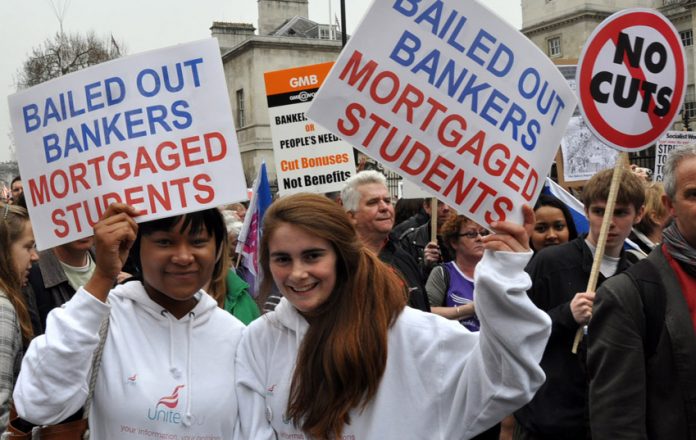
BANK of England Governor Mervyn King has warned that the UK financial crisis is possibly the greatest ever crisis in the history of capitalism.
He was speaking on Thursday evening in the wake of the Bank’s Monetary Policy Committee’s decision to authorise the injection of a further £75bn into the economy through quantitative easing (QE).
King said: ‘This is the most serious financial crisis we’ve seen at least since the 1930s, if not ever.’
He dismissed concerns that printing more money will spur inflation, warning that the UK faced a different problem of growth, that ‘world economy as a whole is slowing down much faster than people thought’.
He stressed: ‘We’re having to deal with very unusual circumstances and to act calmly and do the right thing.
‘The right thing at present is to create some more money to inject into the economy.’
King would not rule out a further increase in QE.
Commenting on the MPC decision, Michael Saunders, UK economist at Citigroup, said: ‘With the recent large deterioration in the economic outlook, the MPC will probably have to do QE on a very big scale.
‘We expect the cumulative total will eventually reach £500bn or so. It may go even higher than that.’
Despite criticising the use of QE in the past, Chancellor George Osborne said it was now the right move to make.
Osborne also said he endorsed King’s view on the severity of the crisis.
‘I certainly think it’s as serious as anything since the 1930s,’ he told the BBC.
Osborne had said in 2009, when he had been in opposition, that ‘printing money is the last resort of desperate governments when all other policies have failed’.
But speaking to the Today programme yesterday, the chancellor said: ‘We inherited as a government a pretty desperate fiscal position and we had to take action.
‘I think the crucial difference this time is that you’ve got a credible government plan to deal with our debt.’
Osborne added that the UK’s authorities were using ‘all the tools available to deal with the worsening global debt storm’.
In his letter to King, authorising the QE expansion, Osborne referred to the ‘credit easing’ he announced at the Tory party conference.
He wrote: ‘Given evidence of continued impairment in the flow of credit to some parts of the real economy, notably small and medium-sized businesses, the Treasury is exploring further policy actions.
‘Such interventions should complement the MPC’s asset purchases.’
The Bank of England has already pumped £200 billion into the economy through QE, by buying assets such as government bonds in an attempt to boost bank lending.
Meanwhile, the Office for National Statistics announced yesterday: ‘Output price “factory gate” annual inflation for all manufactured products rose 6.3 per cent in the year to September 2011.
‘Month on month the output price measure for all manufactured products rose 0.3 per cent between August and September.
‘The “narrow” output price measure, which leaves out volatile sectors, showed an annual rise of 3.8 per cent.
‘Input price annual inflation rose 17.5 per cent in September, compared with a rise of 16.2 per cent in the year to August.
‘Month on month, the input price measure of UK manufacturers’ materials and fuels rose 1.7 per cent in September.
‘The “narrow” input price measure rose 13.3 per cent in the year to September. In seasonally adjusted terms the index rose 0.8 per cent between August and September.’
Meanwhile, Bank share prices were hit after rating agency Moody’s downgraded 12 UK financial institutions, including Royal Bank of Scotland and Lloyds TSB.
RBS shares fell 4.1 per cent while Lloyds Banking Group was down 3.1 per cent by mid-afternoon.
Moody’s also downgraded nine Portuguese banks, citing their exposure to government debt and a weak economic growth outlook.
On Tuesday, Moody’s cut Italy’s credit rating for the first time in almost two decades on concern that its economic growth may be too weak to enable the reduction of the region’s second-largest debt load.
The Bank of Japan governor warned yesterday that the country’s economic recovery faces increasing threats from Europe’s sovereign debt woes and a slowdown in global growth, reflecting similar comments from other central banks this week.